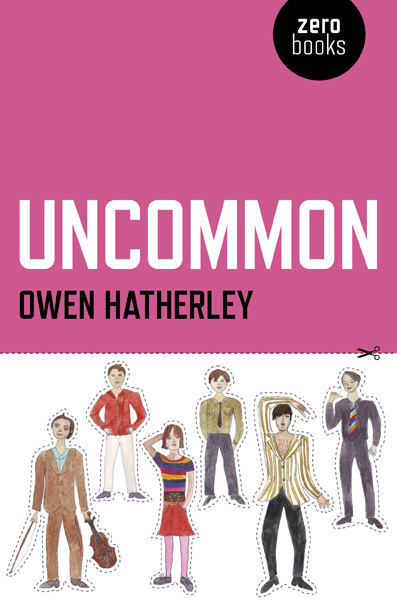Uncommon
The history of the Jarvis Cocker’s 1990s Britpop band, Pulp,through sex, pop, class war and Sheffield.

The history of the Jarvis Cocker’s 1990s Britpop band, Pulp,through sex, pop, class war and Sheffield.
The history of the Jarvis Cocker’s 1990s Britpop band, Pulp,through sex, pop, class war and Sheffield.
Pop vocal, Popular culture
If we remember them at all, the Sheffield pop group Pulp are remembered for jolly class warfare ditty 'Common People', for the celebrity of their interestingly-named frontman, for the latter waving his arse at Michael Jackson at the Brit awards, for being part of a non-movement called 'Britpop', and for disappearing almost without trace shortly after. They made a few good tunes, they did some funny videos, and while they might be National Treasures, they're nothing serious. Are they?
This book argues that they should be taken seriously - very seriously indeed. Attempting to wrest Pulp away from the grim jingoistic spectacle of Britpop and the revivals-of-a-revival circuit, this book charts the very strange things that occur in their records, taking us deep into a strange exotic land; a land of acrylics, adultery, architecture, analogue synthesisers and burning class anger.
This is book about pop music, but it is mainly a book about sex, the city and class via the 1990s finest British pop group.
Click on the circles below to see more reviews
The Battle of Orgreave may have been lost, but Cocker never forgave nor forgot the violence wreaked on his native Sheffield. In the pointillist details of his songs – “The smell of gas and potato peelings” in Street Lites (1994); “Net curtains blowing slightly in the breeze/ Lemonade light filtering through the trees” in Acrylic Afternoons (1994) – there’s a palpable desire not just to Keep It Real (in rap parlance), but to make the past seem as vivid and raw as a bruise. This political Cocker is the subject of Uncommon, Owen Hatherley’s bracingly intelligent book-length essay about a band he praises for “holding on to the possibility of utopias and alternatives, in being able to use the word ‘socialism’ without smirking”. A superior architecture critic, he’s especially acute on the ways in which post-industrial Sheffield, its modernist buildings and flawed urbanism, infuses many of Pulp’s finest songs. ~ Sukhdev Sandhu, The Daily Telegraph
It seems that now might be an appropriate time to revisit the remarkable music of Pulp. Luckily, we have an excellent gazetter on this journey - Uncommon. Hatherley is a prolific and insightful critic.
~ Leonard Nevarez, Musical UrbanismHatherley has produced a perfect tribute to Pulp and the time that produced them as a band, invoking the sincerity of their ambitions as musicians and story-tellers. This account of their career is an excellent excoriation of Britpop and New Labour hagiographies.
~ Emmet O'Cuana, abookadaytillicanstayThis book is a small marvel. Even within the most ambiguous cultural flowering, something transcendent is cached. Owen Hatherley knows this. Possessed of an architect's clarity and a modernist's astringent vision, he draws forth the the paradoxical and brilliant core of Britpop, and restores Pulp's contradictory genius to its proper place in history. Behind the Blairite swagger of Cool Britannia and the spackle of commercial spectacle, Hatherley finds the truth of pop culture and social antagonism, entangled with the glory and oddity of Pulp's musical career and evanescent fame. Elegant about the songs, lucid about the band's warped trajectory, and incisive about the politics of daily life coiled within the sound and lyrics and moment, Hatherley chronicles the adventures of the Sheffield gang and their "class war casanova" who came forth as the truth of a deeply false moment, bad faith you could dance to, a dialectical verdict on a singular passage in time.
~ Joshua Clover
"Britain's best writer on modern architecture on Britain's best pop group informed by modern architecture."
Bob Stanley
~ Bob Stanley